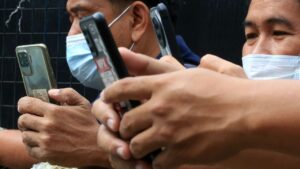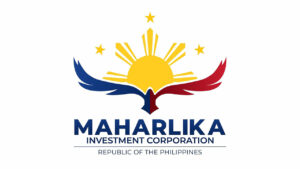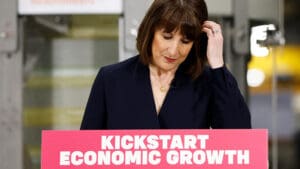When people think of Switzerland, visions of precision watches and delectable chocolates come to mind. Mention Italy, and thoughts of food, fashion, and art follow. Say Philippines, and ideas of warmth, diaspora resilience, and natural beauty emerge.
These impressions reflect organic nation branding. The question is whether a country is actively shaping its brand or merely allowing history and culture to define it.
THE REALITY OF UNPLANNED NATION BRANDINGUnplanned nation branding develops organically — through culture, environment, and perception rather than strategy. It is shaped by random but cumulative experiences: encounters with Filipinos abroad, the ease or difficulty of doing business, the stories travelers bring home, and what people see in media, social media, or hearsay.
Japan, for instance, is known for technological innovation, a disciplined culture, and enduring traditions. The United States resonates globally through its economic power and democratic ideals. On the other hand, Nigeria often struggles with a reputation marred by corruption stereotypes. Heard of the Nigerian prince? The Philippines is known for the hospitality, malasakit (compassion), and resilience of Overseas Filipino Workers, our informal brand ambassadors who shape perceptions worldwide.
But this organic branding can endure only so long. Without an intentional strategy, it remains vulnerable to stereotypes and narratives that are either shallow or unchallenged.
An MIT study published in Science reveals that false news on X (formerly Twitter) travels markedly faster than the truth — not because of automated bots, but because people themselves choose to share and amplify it. Even when researchers removed all bots, misinformation continued to spread wider and quicker than factual accounts.
In fact, analyzing 126,000 rumors and false news stories over 11 years, the study found that fake news traveled six times faster than the truth and consistently reached more people. The battle for perception, then, is not only against lies but against the very human tendency to pass them along.
The lesson is clear: in an age where falsehoods outpace facts, nation branding cannot be left to chance. It must be deliberate, strategic, and relentlessly reinforced.
THE POWER OF PLANNED NATION BRANDINGPlanned nation branding is more than slogans and campaigns — it is the deliberate alignment of policy, culture, and communication to build reputational capital. Done with purpose, it attracts investment, talent, tourism, and influence.
We have seen this across the world. South Korea, once known as a low-cost manufacturing hub, reinvented itself as a cultural and technological powerhouse through the Hallyu Wave, Samsung, and Hyundai — backed by government resolve. Singapore has long projected efficiency, innovation, and governance excellence. New Zealand’s “100% Pure New Zealand” wove together tourism and environmental stewardship, making sustainability its national identity.
And then there is the United Arab Emirates (UAE) — where vision turned desert landscapes into dynamic centers of trade, tourism, and innovation. The UAE shows how consistent branding, anchored on bold leadership and execution, can transform global perception within a single generation.
When nations take charge of their narrative, perception becomes more than image — it becomes a strategic asset, a currency of diplomacy, and a driver of economic opportunity and foreign investment.
TRUST IS THE FOUNDATION OF NATION BRANDINGNation branding isn’t built through slogans alone. The recent flood control projects scandal — where approximately P545 billion was allocated to infrastructure, only for many projects to be revealed as substandard, undocumented, or “ghosts” — shows how quickly trust can erode.
Yet scandals, while damaging, also present opportunities. This moment calls for leaders and institutions to confront weaknesses and change the narrative. By turning a painful chapter into a platform for reform, transparency, and accountability, the Philippines can rebuild trust at home and inspire confidence abroad.
Credibility begins at home: before a country can inspire global audiences, it must first earn the trust of its own citizens.
A brand is what people say when you’re not in the room.
Today, Filipinos are talking about ghost projects. This is the narrative echoed across homes, newsfeeds, and international headlines.
MAP, together with 30 business and civic groups, has urged an end to corruption — calling for accountability, transparency, and reforms for a stronger Philippines.
Nation branding is ultimately shaped by what citizens, media, and the world amplify — not just by official statements or campaigns. But when governments take bold steps to fix what is broken, people begin to tell a new story — one of resilience, reform, and renewal.
WHY THIS MATTERS FOR THE PHILIPPINESAt a critical juncture, with the ASEAN 2026 chairmanship approaching, the Philippines has the opportunity to shift from being known primarily as a labor-exporting nation to one of innovation, creativity, and leadership. A country admired for ease of doing business, predictable processes, and little red tape.
Our greatest asset is our people — healthcare professionals, engineers, architects, seafarers, and creatives — who are admired globally for empathy, adaptability, and resilience. The task is to align these strengths with credible public governance and a compelling narrative.
Nation branding is not about marketing — it’s about synchronizing identity with action, ensuring that global perception matches authentic strengths. Managed well, reputation becomes national capital, driving tourism, trade, diplomacy, and investment. Neglected, the narrative may be defined by scandal, not intention.
The current controversies can mark a beginning. By addressing ghost projects decisively and turning lessons into reforms, the Philippines can showcase integrity and accountability as central pillars of its brand.
As the Management Association of the Philippines (MAP) celebrates its 75th anniversary, we see the value of a reputation built over decades of convening leaders and shaping conversations. The Philippines must invest similarly in its national brand — purposely, strategically, and authentically.
Every nation tells a story. The question is: are we telling our own, or letting others tell it for us?
Dr. Karen Remo is a Co-Chair of MAP’s Communications Committee and Co-Vice-Chair of its Trade, Investments and Tourism Committee. She is the CEO and founder of New Perspective Media Group and The Filipino Times.


















